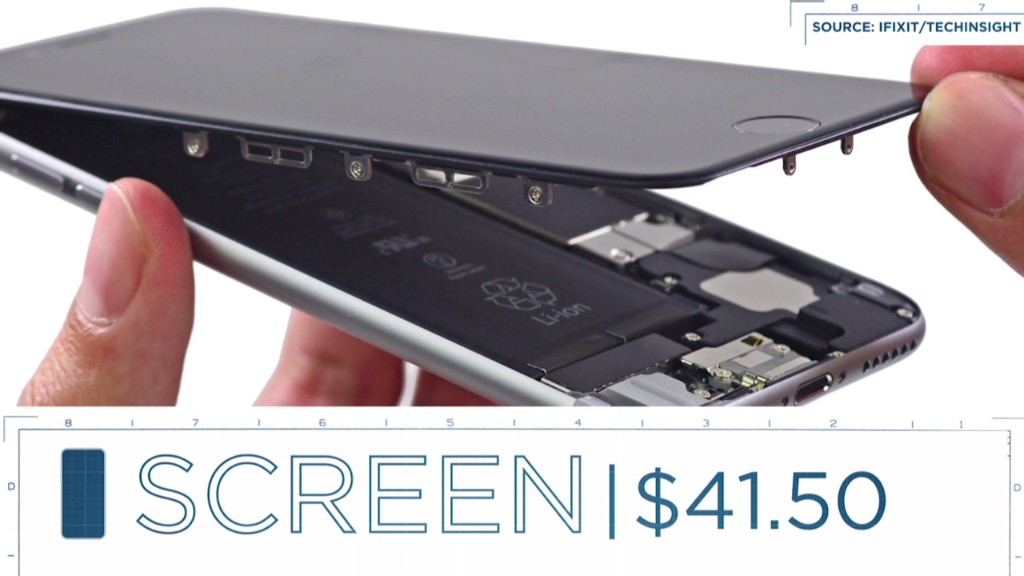
If you have a 16 GB iPhone, you've probably noticed that you don't really have 16 GB of storage space -- some of that space is taken up by Apple's iOS software. But you probably haven't thought to sue Apple over it.
That's the difference between you and two Apple (AAPL) customers in Miami who sued Apple for their incredible shrinking storage.
The plaintiffs filed their lawsuit in a California federal court on Tuesday, and they are seeking permission to make their complaint a class action suit. They are seeking more than $5 million in damages for what they say is Apple's false advertising.
Apple's new iOS 8 software takes up 3 GB of storage on an iPhone 6. That's 19% of the phone's 16 GB of advertised storage. The iOS 8 software takes up 20% of an iPhone 6 Plus' storage and 21% of an iPad's free space.
"Apple's misrepresentations and omissions are deceptive and misleading because they omit material facts that an average consumer would consider in deciding whether to purchase its products," the plaintiffs say in their complaint.
Rather than try to cram everything into what little space they have on their smartphones, many people choose to back up their photos, videos and other content on cloud services, such as Apple's iCloud. But the plaintiffs say that's all part of Apple's game.
"Apple exploits the discrepancy between represented and available capacity for its own gain by offering to sell, and by selling, cloud storage capacity to purchasers whose internal storage capacity is at or near exhaustion," the complaint says.
Apple did not reply to a request for comment.
Related: Is Apple the perfect stock?
This is not the first time Apple has been sued for misleading customers about storage space. In 2007, angry iPod Nano customers filed a lawsuit against Apple for only providing 7.45 GB of storage in their 8 GB iPods (less than 7% for those scoring at home). That case was ultimately dismissed.
Other companies have faced similar lawsuits. Microsoft (MSFT) was sued in 2012 for falsely advertising the amount of storage available to Surface tablet customers. But those tablets, which run the much more data-intensive Windows operating system, actually have less than half their 32 GB of advertised storage available for customers' use.

